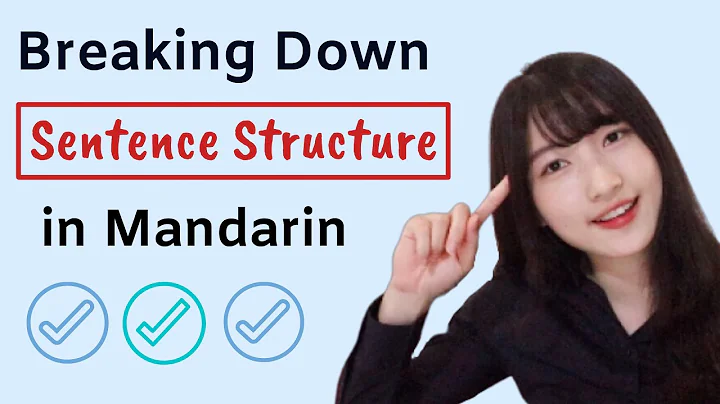
Text: Wang Jianbin History Reading Columnist
Wenyuange Bachelor Chen Tingjing during the Kangxi Dynasty was an indispensable figure in the history of clean government. He is not only a representative of integrity, but he is also not afraid of powerful officials and fights corruption with an iron fist, and has brought down many corrupt officials. His story and practice of severely punishing corruption provide useful reference for our current anti-corruption approach that insists on addressing both the symptoms and root causes.
Chen Tingjing was the teacher of Emperor Kangxi, and served successively as bachelor of Wenyuan Pavilion, Shangshu of the Ministry of Justice, Shangshu of the Ministry of Personnel, and chief editor of "Kangxi Dictionary". Since the Qing Dynasty did not have a prime minister, a great scholar was equivalent to the prime minister.
Chen Tingjing is an upright official and has a kind heart; Chen Tingjing is a good official and is shrewd and capable; Chen Tingjing is a capable official and does good deeds; Chen Tingjing is a virtuous official and has an iron fist. Kangxi reigned for 61 years, and Chen Tingjing served in politics for 53 years, assisting Kangxi for more than half a century.
"Manuscripts of Qing History" records that after Chen Tingjing's death, Emperor Kangxi "cherished him deeply" and wrote an elegy for him in his own handwriting: "The poems handed down from generation to generation are rich in poems, and the name is only the glory of Du Yi. Last year, he injured Yuan Fu, and he suffered from it for many years." Soup. Chao Feng Kui Zhongli, the country's elegance and empty steps are sighing, and the long sigh is bright and moist. Emperor Kangxi commented on Chen Tingjing in eight words: "He is generous and mature, and he is almost perfect." What is praised is that Chen Tingjing not only has noble conduct, perfect personality, profound knowledge, and the ability to write books and treatises, but also made great achievements in the field of anti-corruption, with remarkable results and far-reaching influence on future generations.
Chen Tingjing, whose real name is Chen Jing, whose courtesy name is Ziduan and whose nickname is Shuoyan, was born in Yangcheng, Zezhou Prefecture in the Qing Dynasty and is now a native of Jincheng, Shanxi Province. In 1658, 19-year-old Chen Jing went to Beijing to pass the imperial examination and was awarded an official position. Because there was a person with the same name in the same subject, Emperor Shunzhi added the word "ting" to his name and changed it to Chen Tingjing.
Chen Tingjing came from a scholarly family. In 1638, Chen Tingjing was born in Huangcheng Village, Yangcheng County. The Chen family has been engaged in reading for generations, and there have been many Jinshi scholars in the family. But Chen Tingjing's great-great-grandfather, Chen Xiu, took the exam many times and failed, so he had no choice but to start a business.
Chen Xiu has outstanding business talents. He quickly became rich through operating coal mines and iron smelting, becoming a prominent local family and accumulating huge foundations and assets. It is the expectation of parents in every era to hope that their children will succeed. Chen Xiu already had a great family and a great business, but instead of relaxing on his children's studies, he became more demanding.
In Chen Tingjing's grandfather's generation, the Chen family began to run schools and built private schools, which not only taught their own children but also accepted children from poor families nearby.
Chen Tingjing has been extremely intelligent since he was a child, and he has read a lot of books. He started reading the works of Neo-Confucianists when he was only 7 years old. When he was 9 years old, Chen Tingjing’s teacher thought that Chen Tingjing was too extraordinary and could no longer teach him with his knowledge. Him. When he was 14 years old, Chen Tingjing took part in the college examination with his father. As a result, Chen Tingjing did better than his father and ranked first. This made his father, who was in charge of the family business, very ashamed, but he was even more happy: There is a successor to the Chen family!
In the fifteenth year of Shunzhi (1658), Chen Tingjing passed the imperial examination and caught up with the imperial court to hold the examination. At that time, Chen Jing, a Jinshi from Shuntian and Tongzhou, also passed the examination. In order to distinguish him, Shunzhi named Chen Ting "Chen Tingjing".
Because his ranking in the general examination was not too high, Chen Tingjing was selected as a Shujishi, that is, as a reserve cadre, he stayed in the Hanlin Academy to continue his studies.
In 11661, after Kangxi ascended the throne, Chen Tingjing served as Kangxi's lecturer at the Confucian Banquet, served as a bachelor's lecturer at the Hanlin Academy, and was on duty at the Hongde Hall to lecture for Kangxi on a daily basis.

When Emperor Kangxi was eight years old, Chen Tingjing was serving as the Minister of Household Affairs, in charge of money and materials. One day, Xiao Kangxi said to Chen Tingjing: "Mr. Chen, please lend me some money." Chen Tingjing asked: "Long live, what do you want the money for?" Xiao Kangxi said: "To play." Children, don't they just like it? Play.
Chen Tingjing said: "Long live the money you need to spend. I will lend it to you when I receive my salary." Xiao Kangxi snorted and said, "How much money can you get from your salary? I want thirty-five thousand taels from the national treasury. Have fun for a few days." Chen Tingjing said: "The imperial court has regulations and no one can embezzle it.Long live, I dare not lend it to you!"
Xiao Kangxi was angry and chased Chen Tingjing away: "What can't be appropriated? It's obvious that you think I'm not pro-government and look down on me! Humph, wait until I take charge and chop your head off!"
After Kangxi took charge, Chen Tingjing still remembered this matter. He resigned several times. Kangxi smiled and said: "I was still young and ignorant at that time. You did the right thing!"
Kangxi Chen Tingjing admired Chen Tingjing's knowledge, knowledge, and low-key style of serving the public. Later, under the appreciation of Emperor Kangxi, Chen Tingjing rose through the ranks and served as the Minister of Industry, Household Affairs, Officials, and Punishment, and finally served as the Bachelor of Wenyuan Pavilion, which is the highest position among civil servants. , equivalent to the prime minister. Therefore, later generations called him the "Prime Minister of the Qing Dynasty".
Chen Tingjing was born in the late Ming Dynasty and grew up in the early Qing Dynasty. Shanxi was an area greatly influenced by Cheng-Zhu Neo-Confucianism. Many people practiced Neo-Confucianism. Chen Tingjing was one of them. In this way, the personal ethics emphasized by Neo-Confucianism, specifically in the officialdom, require that one should be honest when dealing with corrupt officials.
Chen Tingjing was honest in politics. The "Manuscript of Qing History" rated Chen Tingjing as "honest and diligent". He was also very strict with his family members and warned them not to let in anyone who behaved badly or came to give gifts or bribes. When he took up the post of the Ministry of Rites, he set a rule: "Since the beginning of the imperial court, no entrustment is allowed in the ministry, and no gifts are allowed." "Refuse to treat guests to dinner, and prohibit giving gifts.
Chen Tingjing banned extravagance, selected officials based on public spirit, love for the people, diligence, and integrity, and required local governments to disclose disaster relief money and food accounts to prevent corrupt officials from harming the people.
Chen Tingjing's time in charge of officialdom For a long time, he served as the Minister of the Ministry of Civil Affairs twice, and served as the top leader of the Metropolitan Procuratorate in charge of supervision, impeachment and recommendations twice. He was in charge of national supervision affairs and supervising the provincial officials was the focus of his work. The purpose of being ruthless in corruption is to make the governors "dare not corrupt". In 11684, Kangxi asked Chen Tingjing to manage the coinage. Because after the pacification of San Francisco, the Qing Dynasty's social and economic development increased greatly, and the demand for copper coins increased greatly. Copper was expensive and silver was cheap, so some officials began to collude with profiteers, destroy money and cast copper , and make huge profits from it.
Chen Tingjing proposed a method to reduce the weight of copper coins and make it unprofitable to destroy money to cast copper, which fundamentally curbed it. At the same time, Chen Tingjing also personally rectified the corruption problem in the coinage process.
The former official in charge of coinage, Corkun, had serious corruption during his tenure, which led to a shortage of copper materials. His predecessor, the Secretary of the Ministry of Revenue, Samuha, interfered with Chen Tingjing's investigation. This is now a confrontation with the organization's review. At this time, Chen Tingjing performed the duties equivalent to today's Discipline Inspection Commission. He was determined to bring those who violated discipline and refused to repent. He took people to live and eat in the mint, collected evidence, and finally verified the corruption case of Colqun, and forced Samuha to retire early. In 1685, Chen Tingjing pointed out that luxury leads to corruption, and frugality leads to incorruptibility. This year, Chen Tingjing, who was the censor of Zuodu at the time, visited Yunnan, and then presented three memorials to Kangxi, pointing the finger directly at Yunnan Governor Wang Jiwen, impeaching him for taking advantage of the pacification of the San Francisco dynasty to "lose several to one million yuan in national taxes" "More than 900,000 taels of salary have been confiscated", please ask Kangxi to order a thorough investigation.
The governor is the highest military and civil affairs officer in a province and has great power. Chen Tingjing's impeachment of Wang Jiwen was undoubtedly a big deal at the time. "Blockbuster", he personally had to bear a lot of pressure and risks. Chen Tingjing had already investigated and secretly investigated, and had sufficient evidence. The sophistry of corrupt officials was of no avail. The evidence was conclusive, so Wang Jiwen was quickly dismissed from office.
From then on, the officialdom " When the moral integrity is rectified, all officials, big and small, are in fear."
Chen Tingjing pointed out: If the boss is honest, subordinate officials will naturally not dare to take bribes and break the law. If the boss is corrupt and breaks the law, even if the subordinate officials want to be honest, it will not be easy to do so. Because they need to do it every day If you are busy observing words and flattering your superiors, how can you have time to teach? When the people see what the officials do, they will say, can such a person teach me?
Governors and governors must be qualified, and they must Don't be moved by the desire for gain.Only when you are upright can you manage officials well. Officials do not have to think about how to flatter and curry favor with their superiors all day long. They should focus on doing things for the people, so that the people can rest and recuperate. The inspection of the governor depends on whether he is honest and dedicated to the public affairs and whether he sets an example for other officials.
Chen Tingjing recommended talented people to the court. For example, he believed that the county magistrate Lu Long, Qi and Shao Siyao were both upright officials, and these two people were promoted to censors. Someone said to him that these two people are honest and strong. Being strong will easily lead to trouble. There will be many resentful people, and I am afraid that you, who recommended them, will be affected. Chen Tingjing said: "They really have both ability and political integrity. Even if they cause trouble and are resented by others, it will not hinder them."

Chen Tingjing also participated in an operation to defeat the "big tiger".
During the Kangxi period, there were many famous ministers, but there were many factions among the ministers and party disputes were serious. At that time, Chen Tingjing had not yet been promoted to the bachelor's degree of Wenyuange University, and his official position was inferior to the two. He had been living alone and had not joined any party.
At that time, the struggle between the bachelor Suo Etu and the pearl was particularly fierce, with each other fighting against each other and being wildly corrupt. Due to the power of the two men, officials in the officialdom dared not speak out in anger. Later, Yu Chenglong, the governor of Zhili, secretly reported to Kangxi that all the official positions had been sold out by Mingzhu. Kangxi asked the minister why there was no ginseng to impeach the pearl, and the answer he got was: "Who is not afraid of death?"
Once, when Chen Tingjing gave a lecture to Kangxi , he talked about "The Chapter of the Gentleman and the Villain" and mentioned A gentleman is aboveboard and never Disguise, and villains are good at concealing and are watertight. Once they are favored, they can easily become a roly-poly.
After the lecture, Kangxi left Chen Tingjing alone and asked him directly: "You must have a purpose when you talk about gentlemen and villains. Why don't you tell me, who is the villain in your heart?" Chen Tingjing talked about him, but When mentioning the Pearl, he deliberately referred to the "Ming Xiangguo" as the ministers privately called it.
Kangxi was furious after hearing this. Because the Qing Dynasty never had the position of prime minister. Seeing that the time was right, Chen Tingjing proposed that Mingzhu had taken too much power and that the corruption of many officials was related to Mingzhu's cover-up. He listed many crimes such as Mingzhu's private revision of memorials and the sale of his official position.
Chen Tingjing listed the people who bought offices from Mingzhu and proposed to remove these people to reduce the possible resistance to the investigation of Mingzhu. Kangxi agreed with his method. Subsequently, various methods were used to cut off Mingzhu's confidants and party members one after another. In 1688, with the support of Kangxi, Mingzhu was impeached for forming a party for personal gain and excluding dissidents, and was dismissed.
Chen Tingjing was also involved in the officialdom whirlpool. In 1688, the imperial censor Chen Zizhi participated in the performance, and the governor Zhang Qian of Huguang said that "the official is corrupt and should be dealt with strictly by the ministry." Zhang Qian is Chen Tingjing's in-laws. Although Chen Tingjing and Zhang Qian were not involved in any corruption, Zhang Qian mentioned in his confession that it was Chen Tingjing, Gao Shiqi and Xu Qianxue who "urged" him to strive for the position of governor of Huguang.
The three of them were all important ministers of Kangxi, so they were implicated. Gao and Xu felt deeply aggrieved. After leaving office, they still interfered in the government affairs. Gao Shiqi also went to Shu to impeach Xu Qianxue. Emperor Kangxi knew that Xu Qianxue and Gao Shiqi were arrogant and meddlesome, so he simply drove them out of the capital together.
Chen Tingjing's attitude was very different from these two. When he learned that his in-laws had violated discipline, he felt deeply guilty and took the initiative to resign. After resigning, he concentrated on studying. He was very low-key and did not care about favors or disgrace, which is very rare. Therefore, when Xu Qianxue was "retired and returned to his hometown", Chen Tingjing was appointed by Kangxi as the censor of the Zuodu Procuratorate.






















